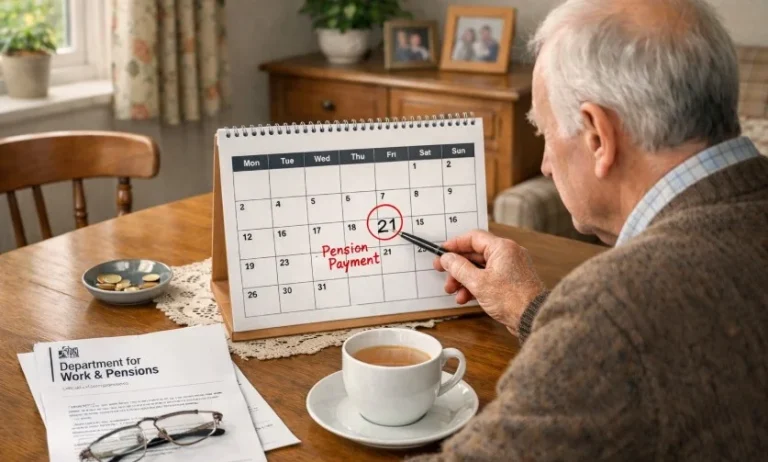As Chancellor Rachel Reeves prepares to deliver her 26 November Budget, growing attention is being paid to a potential mansion tax targeting high-value properties.
The proposal has ignited a heated debate across Westminster, with supporters hailing it as a fair wealth redistribution tool and critics warning of damaging effects on the housing market and investor confidence.
With political tensions rising, the Rachel Reeves mansion tax plan could become a defining moment for the government’s fiscal strategy.
What Is Rachel Reeves’ Mansion Tax Plan and Why Is It Controversial?

Rachel Reeves, the Chancellor, is reportedly considering a mansion tax targeting homes valued over £2 million as part of the upcoming Autumn Budget.
The idea stems from recommendations by the Resolution Foundation and aims to close a substantial £40 billion fiscal shortfall.
The proposal suggests a 1% annual tax on the portion of a property’s value exceeding £2 million. For example, a home valued at £2.5 million would incur a yearly tax of £5,000.
This policy could potentially generate several billion pounds annually but has drawn criticism due to its potential effect on the housing market and investor confidence.
Political tensions have intensified over this proposal, with parts of the Labour Party backing it as a measure to address inequality while others within the government view it as economically risky.
How Could the Mansion Tax Impact the UK Housing Market?
The UK housing market, especially in London and the South East, would likely experience significant shifts if the mansion tax were implemented.
Analysts suggest that the top end of the market could see immediate effects due to annual liabilities discouraging buyers from purchasing high-value properties.
Several economic concerns include:
- Devaluation of properties just above the threshold
- Potential ripple effects causing value suppression in lower-priced properties
- Disincentives to improve or extend properties due to valuation triggers
A devaluing effect could lead some homeowners into negative equity, particularly those who purchased properties at peak valuations with large mortgages.
This would dampen market mobility and slow overall property transactions.
According to Simon Gammon of Knight Frank Finance, the tax would likely slow the housing market at a time when the government needs it to move.
Developers may delay new projects due to reduced demand, complicating housing supply goals.
Who Supports the Mansion Tax Proposal and Who Opposes It?
Supporters of the mansion tax include:
- Left-leaning Labour MPs
- Trade unions
- Think tanks such as the Resolution Foundation
They argue that it addresses growing wealth inequality and provides a progressive way to increase public revenues without burdening lower-income households.
Opposition comes from:
- Several high-ranking Labour cabinet ministers
- Property experts and mortgage professionals
- Former Conservative leaders including Rishi Sunak
These opponents argue that it could be damaging to growth and politically risky. Cabinet members such as Darren Jones and David Lammy reportedly favour maintaining a pro-investment stance, especially in areas reliant on property as an economic driver.
The political divide within the Labour Party also poses a risk to internal cohesion, especially with more members pushing for additional wealth taxes like a bank levy or reform to non-dom tax status.
Is the Mansion Tax an Attack on Aspiration or a Fair Wealth Redistribution Tool?
The mansion tax debate has become a broader ideological clash between progressive taxation and aspirational policy.
Supporters argue that it is a rational step toward equity, ensuring that wealthier individuals contribute more to public finances, especially during economic uncertainty.
Critics, however, suggest that the tax sends a message that success and property investment are being penalised.
This perception could influence voter behaviour, particularly among middle-class homeowners and professionals in key constituencies.
While the mansion tax applies to properties valued over £2 million, its symbolic weight may carry broader implications.
Some see it as reflective of a wider Labour strategy to redistribute wealth, while others fear it could deter ambition and private enterprise.
Could the Mansion Tax Trigger a Flight of Capital from the UK?

The potential for capital flight is among the most pressing concerns related to the mansion tax.
If high-net-worth individuals feel targeted, they may choose to move their assets abroad or relocate to countries with more favourable tax regimes.
Recent data suggests a growing number of millionaires are already leaving the UK, citing tax changes and market uncertainty.
A mansion tax could accelerate this trend, reducing the number of high-value transactions and property purchases.
This may result in:
- Decreased income from capital gains, stamp duty, and income tax
- Reduced spending in local economies
- Lowered investor confidence in the UK market
Such outcomes would contradict the intended goals of the policy by ultimately reducing the tax base and hindering economic recovery.
What Are the Alternatives to Rachel Reeves’ Mansion Tax?
Several alternatives have been proposed to raise revenue without imposing a mansion tax.
These include revaluing the existing council tax bands, which are based on 1991 property prices and are widely considered outdated.
A simple update of the council tax system could more accurately reflect current property values and ensure that wealthier homeowners pay proportionally more.
Currently, the top band pays only about twice as much as the lowest band despite vast differences in property values.
Council Tax Rebanding Example
| Band | Property Value (1991) | Estimated 2025 Value | Annual Tax (Approx) |
| A | Up to £40,000 | £150,000 | £1,200 |
| H | £320,000+ | £2,000,000+ | £2,400 |
Another alternative is the introduction of a land value tax (LVT), which would replace council tax, stamp duty, and business rates.
This model taxes the unimproved value of land rather than buildings, encouraging more efficient land use and potentially promoting house building.
Proponents argue that an LVT is:
- More difficult to avoid
- Less economically distortive
- Simpler to administer over time
However, implementing such a system would require a substantial overhaul of the UK tax framework.
What Do Property and Mortgage Experts Say About the Mansion Tax?
Experts across the property and financial sectors have expressed scepticism about the mansion tax.
Simon Gammon from Knight Frank Finance noted that the tax would be complex to implement and might generate delays due to the valuation process.
The following challenges are commonly cited:
- Need for widespread and updated property valuations
- Potential for legal disputes over assessed values
- Delays in revenue generation compared to expectations
Timothy Douglas of Propertymark has warned that targeting high-value properties could discourage older homeowners from downsizing, thereby affecting housing availability for families.
He also noted that uncertainty around stamp duty, capital gains tax, and mansion tax could alter buyer behaviour significantly.
Expert Concerns Overview
| Expert Name | Organisation | Concern |
| Simon Gammon | Knight Frank Finance | Delayed revenue due to valuation issues |
| Timothy Douglas | Propertymark | Reduced housing mobility and supply |
| Dan Neidle | Tax Policy Expert | Prefers council tax reform over new levy |
Market participants are already reporting hesitancy among buyers and sellers, indicating that the mere speculation of a mansion tax can have tangible effects on housing activity.
What Is the Broader Political Impact of the Mansion Tax Debate?
The mansion tax has become a symbol of internal tension within the Labour Party. As Starmer navigates the political landscape, he must reconcile pressure from the party’s left wing with the practical realities of governance and economic growth.
The debate is also affecting Labour’s public image. While some see the tax as a principled stand for fairness, others view it as punitive and out of touch with middle-class aspirations.
How Starmer manages this issue could influence Labour’s positioning ahead of the next general election.
Cabinet members fear that missteps on tax policy could cost Labour crucial support in suburban and rural constituencies, especially in the South.
Meanwhile, the Prime Minister’s authority may be tested as unions and grassroots members push for a more redistributive approach to taxation.
Will This Mansion Tax Actually Solve the UK’s Budget Shortfall?

Though the mansion tax may generate revenue, experts argue that it is unlikely to solve the budget shortfall on its own.
With fewer than 100,000 properties likely to fall within the £2 million threshold, the base is too narrow to produce sustainable, long-term income.
Moreover, any revenue from the tax would not be immediate. Property valuations, legal disputes, and implementation logistics would delay funds reaching the Treasury.
Estimated Financial Impact of Mansion Tax
| Metric | Value |
| Targeted Properties | ~90,000 – 100,000 homes |
| Annual Revenue Estimate | £2 – £3 billion |
| Fiscal Shortfall (2025 Budget) | £40 billion |
| Revenue Availability Timeline | 12 – 18 months (est.) |
These figures highlight that while the tax could contribute to revenue generation, it cannot be viewed as a comprehensive solution.
Broader reforms, improved economic growth, and spending reviews will also be necessary to meet the government’s financial objectives.
Conclusion
Rachel Reeves’ consideration of a mansion tax represents a bold political and fiscal move. On one hand, it signals a commitment to progressive taxation and fiscal responsibility.
On the other, it introduces risks that could destabilise the property market, alienate voters, and hamper economic growth.
The backlash from within Labour and among economic experts suggests that more nuanced, long-term tax reform may be necessary.
Whether or not the mansion tax is included in the 26 November Budget, the debate has exposed deeper tensions in UK tax policy and Labour’s future direction.
FAQs About the Mansion Tax Proposal
What exactly is the proposed mansion tax under Rachel Reeves’ plan?
The proposal involves a 1% annual tax on the portion of a property’s value above £2 million, aimed at generating revenue for government spending needs.
How many people in the UK would be affected by the mansion tax?
Estimates suggest that fewer than 100,000 homeowners, mostly in London and the South East, would be affected by the tax.
Could the mansion tax cause house prices to fall?
Yes, experts believe the tax could reduce high-end property values, with potential ripple effects across the entire market.
Is there historical precedent for a mansion tax in the UK?
Yes, similar proposals have been floated in the past, most notably by the Liberal Democrats in 2010 and by Labour in 2015, but were never implemented.
What are the administrative challenges of a mansion tax?
A mansion tax would require accurate and regular property valuations, which haven’t been updated nationwide since 1991. This could create disputes and delays.
Would the mansion tax affect second homes or only primary residences?
While details remain unclear, most discussions suggest it would apply to all properties owned by an individual above the threshold, including second homes.
Are there fairer alternatives to the mansion tax?
Alternatives include updating council tax bands, implementing a land value tax, or reforming stamp duty all seen as potentially more efficient and equitable.








